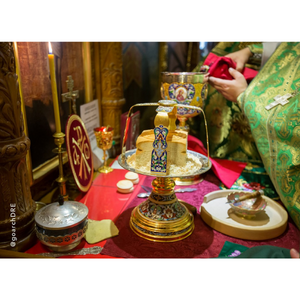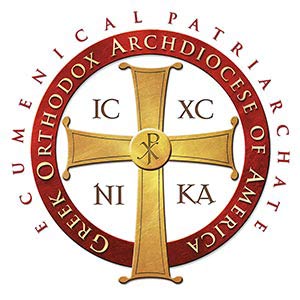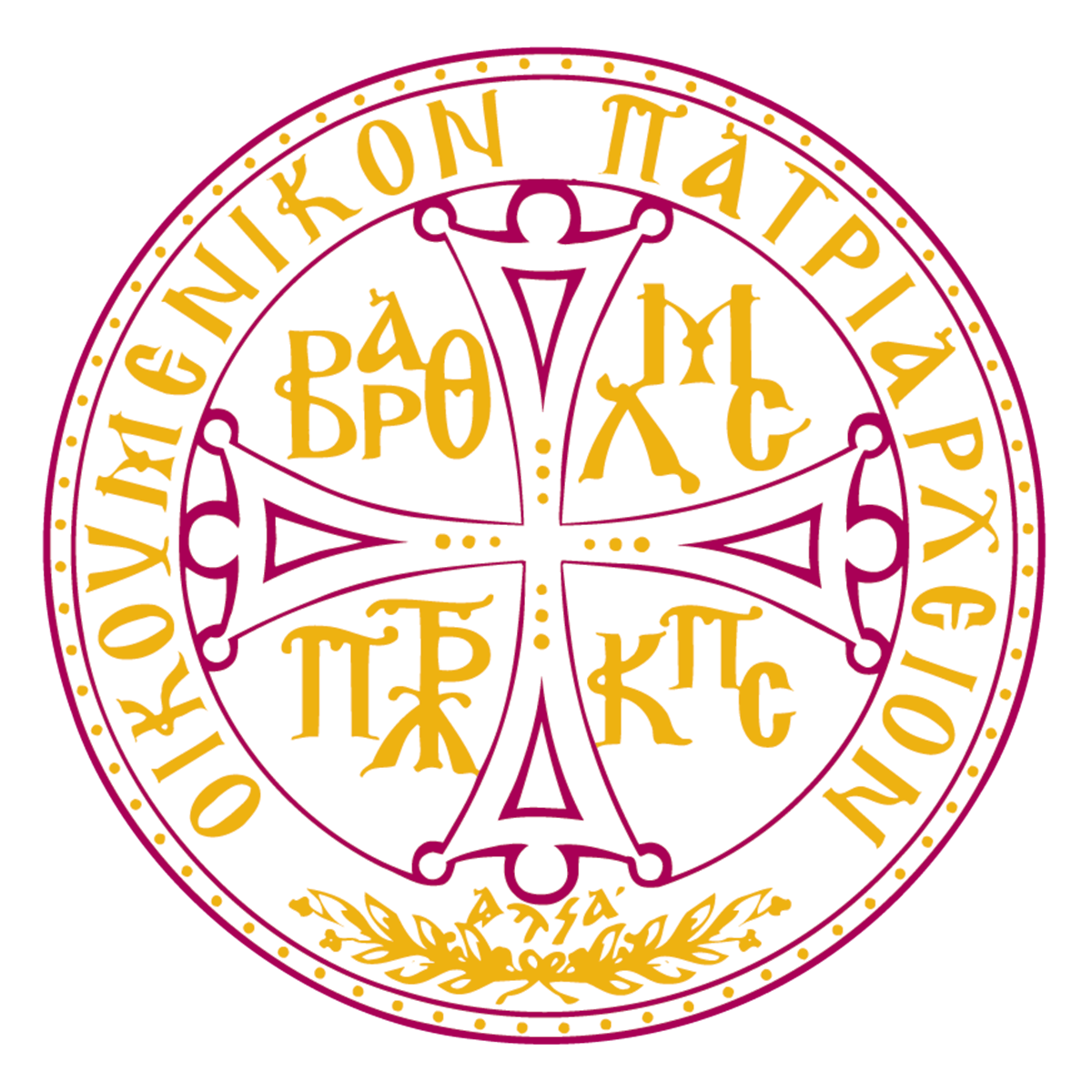Psychosavvato: The Soul Saturday Memorial for Saturday, February 25, will be commemorated after Sunday's Divine Liturgy - no Services on Saturday, Feb. 25. Those who wish, may bring kollyva for the Sunday Memorial Service. We will also have Saturdays of Souls on March 4, and June 3. Parishioners are invited to prepare kollyva and bring a list of names of Orthodox departed for commemoration at the Services. Saturday Divine Liturgy begins at 9:30 AM.
Beginning of Holy & Great Lent: this Monday, called Καθαρά Δευτέρα or Clean Monday, is the first day of Great Lent. On Sunday evening at 5:00 PM, we serve the Forgiveness Vespers where the usual brightness of our Temple is changed to the more somber tone of Lent, and we offer and seek forgiveness for all of our sins and transgressions. On Clean Monday, Orthodox faithful are required to begin a spiritual and moral purification through fasting, prayer, meditation, almsgiving, repentance, attending Lenten religious services and partaking of the Sacraments of Holy Confession and Holy Communion. The distinctive Divine Services during the Lenten period are especially beloved by Greek Orthodox Christians – they include Great Compline on Mondays, the Liturgy of the Presanctified Gifts on Wednesdays & Fridays, Salutations to the Most-Holy Theotokos on Fridays, and on each Sunday the Divine Liturgy of St. Basil the Great, which was compiled in the 4th Century. Great Lent continues until Friday, Apr. 7; and is immediately followed by Lazaros Saturday, Palm Sunday and then Holy Week. There will be ample opportunities for the faithful to participate in the Sacrament of Holy Confession thoughout the Lenten period. Throughout the weekdays of Lent, we pray as taught by St Ephraim the Syrian:
O Lord and Master of my life! Take from me the spirit of sloth, faint-heartedness, lust of power, and idle talk.
But give rather the spirit of chastity, humility, patience, and love to Thy servant.
Yea, Lord and King! Grant me to see my own errors and not to judge my brother, for Thou art blessed unto ages of ages. Amen.
Κύριε καὶ Δέσποτα τῆς ζωῆς μου, πνεῦμα ἀργίας, περιεργίας, φιλαρχίας, καὶ ἀργολογίας μή μοι δῷς.
Πνεῦμα δὲ σωφροσύνης, ταπεινοφροσύνης, ὑπομονῆς, καὶ ἀγάπης χάρισαί μοι τῷ σῷ δούλῳ.
Ναί, Κύριε Βασιλεῦ, δώρησαι μοι τοῦ ὁρᾶν τὰ ἐμὰ πταίσματα, καὶ μὴ κατακρίνειν τὸν ἀδελφόν μου, ὅτι εὐλογητὸς εἶ, εἰς τοὺς αἰῶνας τῶν αἰώνων. Ἀμήν.

For information about current events and calendar, please go here on the parish website.



 Even before Christianity was established, it was common practice for various cultures in the Mediterranean world to hold commemorations for the dead, where sacrifices were offered, family get-togethers were organized, and petitions in favor of the spirits of those who had perished were made.
Even before Christianity was established, it was common practice for various cultures in the Mediterranean world to hold commemorations for the dead, where sacrifices were offered, family get-togethers were organized, and petitions in favor of the spirits of those who had perished were made.
 Nearly 100 parishes now have access to high-tech learning tools for their students. The Department of Greek Education, with the generosity of the Stavros Niarchos Foundation, for a second year, was able to purchase Interactive Panels, SMART TVs, and Chromebooks for parishes that teach the Greek language.
Nearly 100 parishes now have access to high-tech learning tools for their students. The Department of Greek Education, with the generosity of the Stavros Niarchos Foundation, for a second year, was able to purchase Interactive Panels, SMART TVs, and Chromebooks for parishes that teach the Greek language.
 What is the vision for the new GOA charter? During the Leadership 100 Conference in Phoenix, Arizona from Feb. 2 - Feb. 5, 2023, His Eminence Archbishop Elpidophoros of America had the opportunity to address this subject, which remains one of our church's greatest priorities.
What is the vision for the new GOA charter? During the Leadership 100 Conference in Phoenix, Arizona from Feb. 2 - Feb. 5, 2023, His Eminence Archbishop Elpidophoros of America had the opportunity to address this subject, which remains one of our church's greatest priorities.
 The Greek Orthodox Archdiocese Department of Greek Education is delighted to announce the publication of "Oi Rizes Mou" now available on Orthodox Marketplace.
The Greek Orthodox Archdiocese Department of Greek Education is delighted to announce the publication of "Oi Rizes Mou" now available on Orthodox Marketplace.
 All parishes are invited to attend a free webinar - "Using TechSoup to Supercharge Your Parish" - hosted by the Department of Internet Ministries on Wednesday, February 22 at 3:30 PM ET.
All parishes are invited to attend a free webinar - "Using TechSoup to Supercharge Your Parish" - hosted by the Department of Internet Ministries on Wednesday, February 22 at 3:30 PM ET.
 Most honorable brother Hierarchs and blessed children in the Lord,
By the goodwill and grace of the all-merciful and all-benevolent God, already living in the blessed and reverent period of the Triodion, tomorrow we enter Holy and Great Lent, the arena of fasting and “venerable abstinence” that eliminate the passions, during which the depth and wealth of our Orthodox Tradition and the vigilant care of the Church for the spiritual progress of its children are revealed.
Most honorable brother Hierarchs and blessed children in the Lord,
By the goodwill and grace of the all-merciful and all-benevolent God, already living in the blessed and reverent period of the Triodion, tomorrow we enter Holy and Great Lent, the arena of fasting and “venerable abstinence” that eliminate the passions, during which the depth and wealth of our Orthodox Tradition and the vigilant care of the Church for the spiritual progress of its children are revealed.
